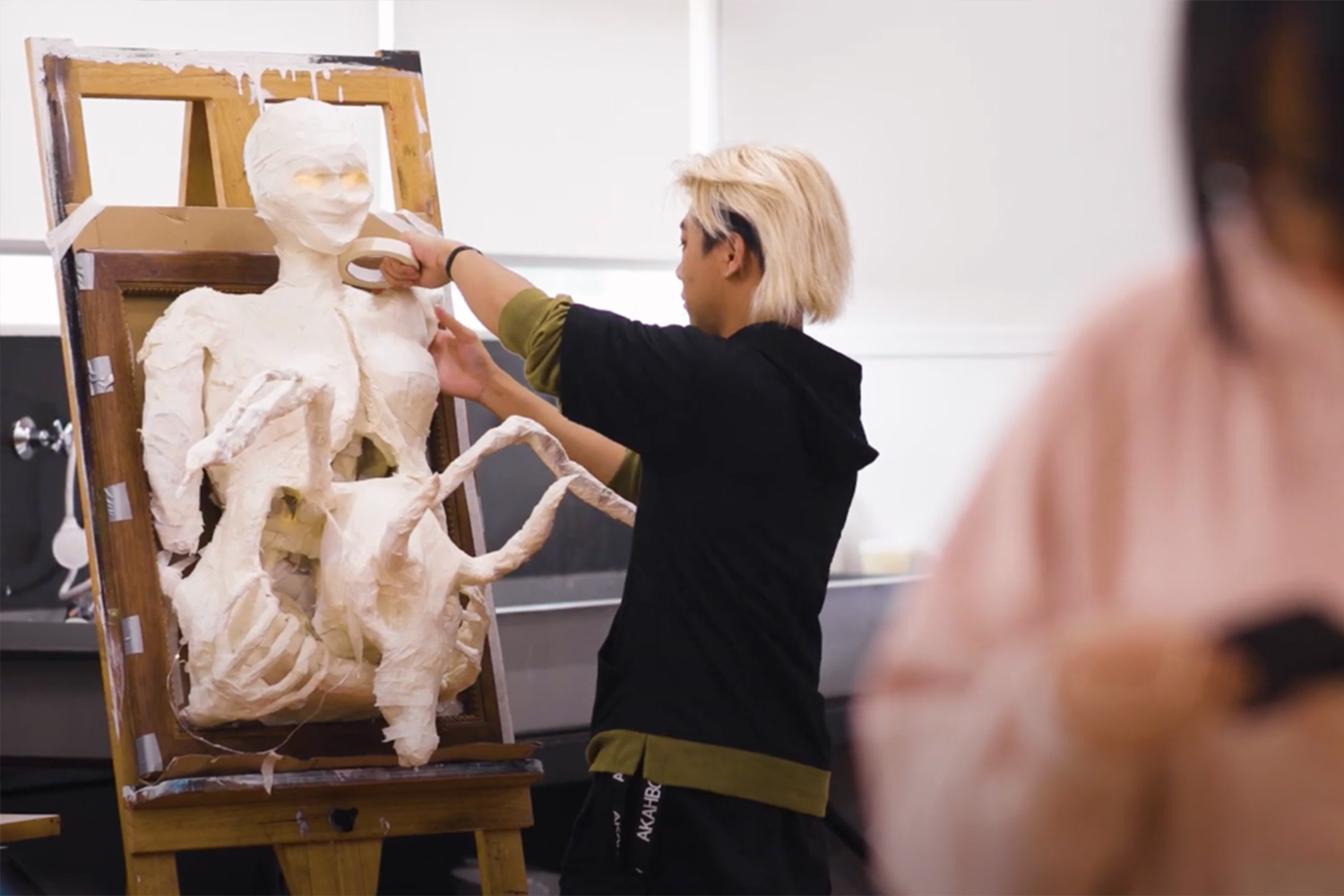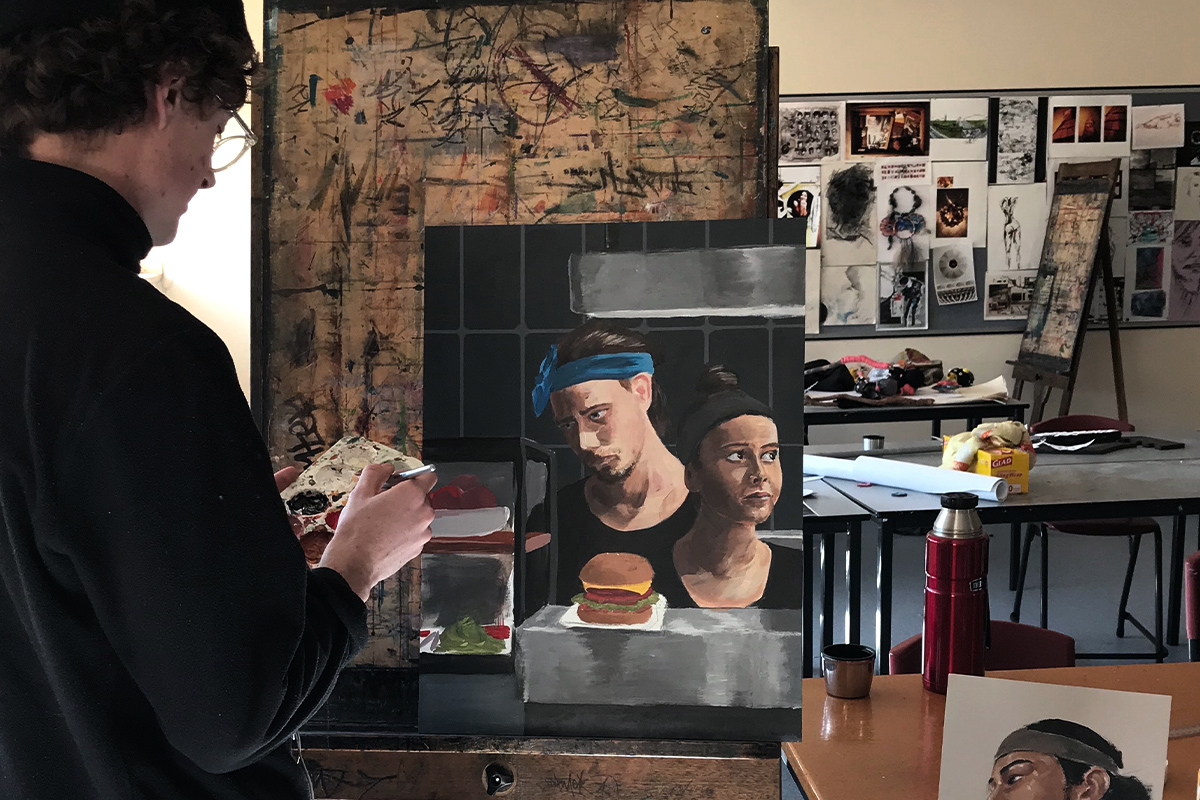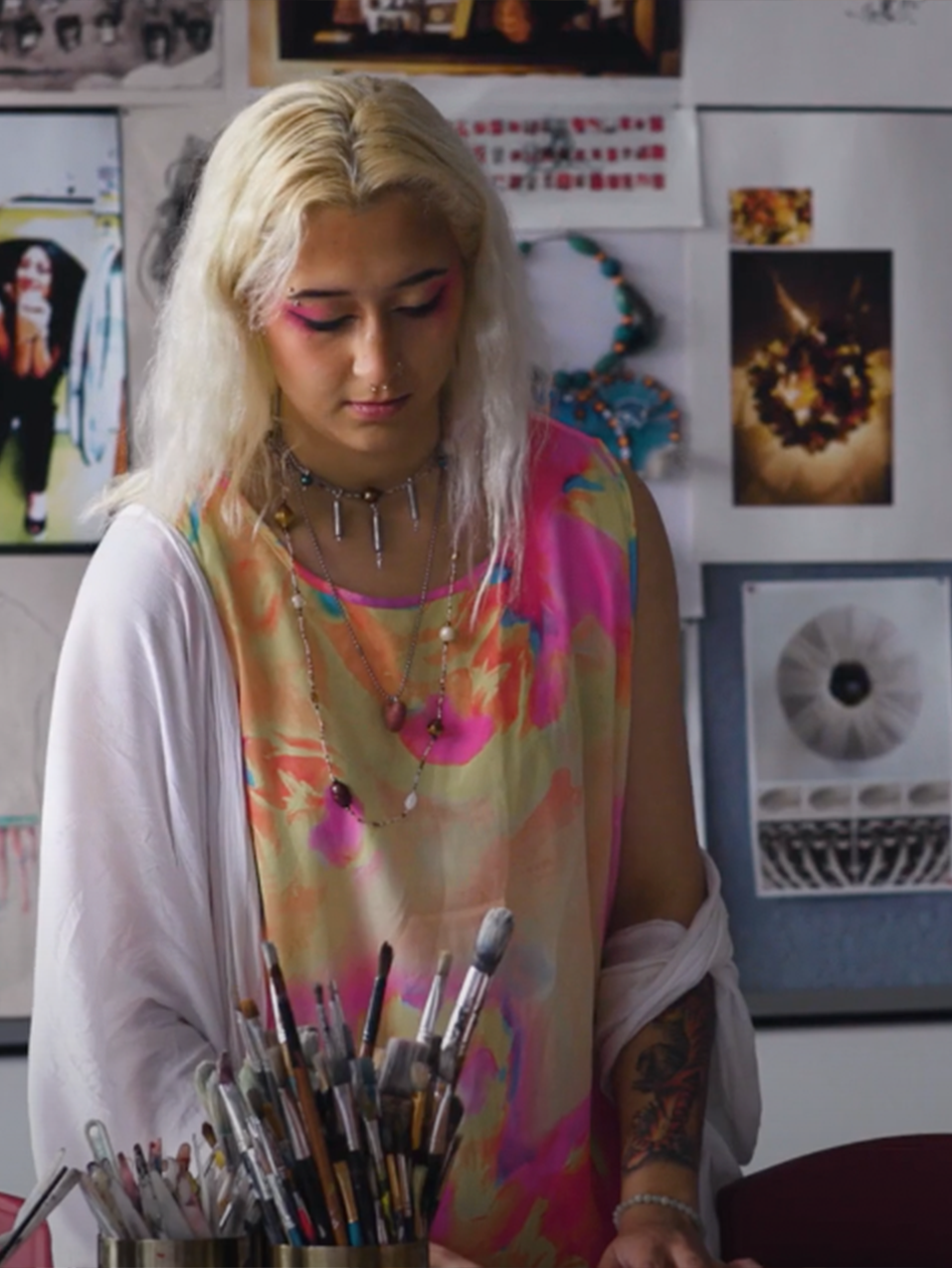The College consults with industry and government reference groups to keep abreast of advancing technology requirements, ensuring that our visual arts curriculum remains consistent with emerging trends. Our facilities include specialist art, drawing and multi-media studios.
TestimonialsEmilia Giess (Visual Arts Student)
“Self expression is something that is valued at the school by teachers and students. Originality is one of our core values. People here can be different and that is valued.”
TestimonialsAnne Connors (VCE Studio Arts)
It’s about them developing their own visual language and the capacity to express their ideas in an individual form.
TestimonialsNatasha Stamos (Media Teacher)
“The way that we build the timetable is so that those Visual Arts subjects have pride of place and that students who come here and want to study those subjects know that they can confidently have a range of Visual Arts.”
(
1 /
5)








